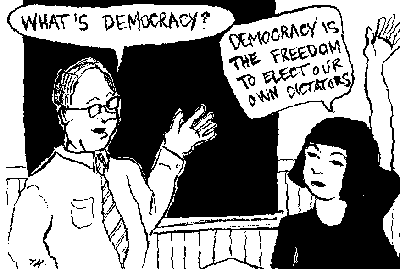
Photo credit: CDD
This government does not represent me. It’s been said time and time again by the dissatisfied, the outraged and the incredulous community of Sri Lanka that is rapidly running out of patience with its leaders. Amongst cries against the warfare and racial tensions that continue to unsettle the island, the cost of living that is spiralling out of control and deplorable public services, it is difficult to see exactly who this Government does represent. Certainly not these angry people; nor the apathetic portion of society that has well and truly given up hope; and most certainly not women.
Women make up of 52% of Sri Lanka’s population but in parliament women’s representation is a mere 4.7% and less than 2% in local government. Not only is this number drastically lower than those in Western countries such as the UK (19.5%) and Germany (31.8%), but also lags behind South Asian neighbours such as Malaysia, where women make up 10% of Members of Parliament.
It as against this backdrop that a workshop was held in Kandy last month on ‘Women defining politics’ to promote female representation at the decision making level. It was organized by the Association of War Affected Women in Kandy and the International Republican Institute (IRI) of Washington DC. The main purpose of the workshop was to introduce women to the ways in which they could participate at the local government level or in civil society initiatives. Visaka Dharmadasa, Chair Person of the Association of War Affected Women of Sri Lanka added that â€Âthis conference was also about women defining politics in its broader sense, not just running for political office but being politically active and aware. To secure our rights and know our responsibility as women and also as citizens. We believe that women at all levels of decision making levels, from governance to administration to the peace process, can make that very important difference.â€Â
Although the levels of women’s education and health are higher in Sri Lanka than those in other South Asian countries, they are disproportionately represented in decision making posts. The reason for this is partly to do with the prevalence of a patriarchal society. One way to counteract this trend would be by introducing the quota system, whereby a certain percentage of female representatives must be maintained in parliament at all times. This system was introduced some years back to increase the youth representation in Sri Lankan politics, and could therefore be used to make way for more gender equality within the country’s government. An increase in the number of women elected would lead to a higher quality of decision making, reflecting the greater diversity of experience of those making the decisions. In the UK, research published by the Electoral Commission suggests that having more women elected representatives actually encourages greater participation rates amongst women generally. There is also evidence in the newly devolved political institutions in Scotland and Wales that the relatively high number of women, 38.8% and 51.7% respectively, have had a discernable impact on shaping their policy agendas. In both bodies, women parliamentarians have championed issues such as the social economy and equal pay.
Representation also plays a symbolic role. If politicians are seen as corrupt, uneducated or power hungry, not many people are going to be able to relate to them. The notion that decision makers should be effective role models and true representatives of their electors is something which remains to be seen in Sri Lanka. Not that this exists everywhere else in the world, but with further abductions, killings and expulsions, the distance between the people and their leaders continues to grow. It is in such conditions that the absence of diverse representation in parliament is felt all the more. As Maldivian Member of Parliament, Maria Didi put it: “Politics is not something exclusive, you should not think of politics in the abstract. It is about everyday life, it is about everyday people, it is about everything that happens in your life. If you leave a segment of society out of it, then you are not going to have a real democracy in the country.†That is to say, a government representing only half of the population is, in effect, only half a democracy.
